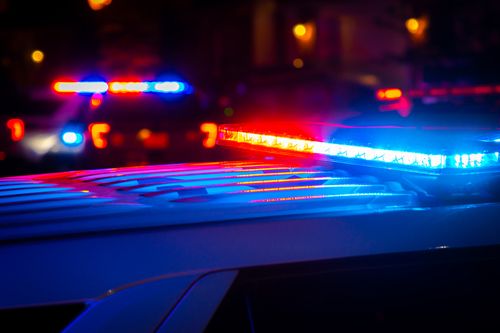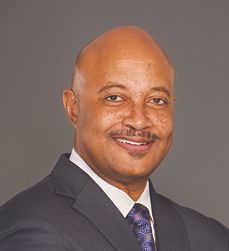Tyre Nichols’ Alleged Killers Already Broke The Law, So More Laws Aren’t The Answer — Accountability Is

By Curtis Hill
Tyre Nichols was allegedly brutally beaten to death by several Memphis police officers, and it was all caught on tape. As a former prosecutor and state attorney general, I customarily reserve judgment even when incidents are video recorded — as proper investigations to ensure fair play do take time and patience.
In this case, however, I do not think it much of a stretch to say the video makes it clear that the police officers involved will go to jail, the city of Memphis is going to pay out millions of dollars to Nichols’ family, and the Memphis Police Department is going to undergo severe and public scrutiny — reflecting its responsibility in the failed training and supervision of these rogue officers. This is accountability as it should be.
Yet, as has become the usual practice, Congress is now being called upon again to enact federal legislation to reform policing — ostensibly to prevent another Tyre Nichols or George Floyd or Rodney King tragedy from occurring.
Had the officers who appeared to beat Nichols to death been white officers, these calls to Congress would have been accompanied by broad assertions of systemic racism and the disproportionate targeting of black victims. But in this instance, with the primary offending officers all appearing to be black, the usual specter of race as a motivator takes a backseat to what is readily apparent — these are just bad cops.
Thus, a proper question is: What should happen now? Do the circumstances of Nichols’ death require national police reform to prevent a similarly deadly occurrence?
By all accounts, what happened to Nichols was a crime and not a reflection of standard police policy. The now-former police officers face criminal charges, including murder.
Would a national ban on police chokeholds have prevented Nichols’ death? That’s what reformers wanted after Floyd’s death — as if that would have saved him from a bad cop.
Would a prohibition against specialized police units like the now-disbanded Memphis Police Department’s Scorpion unit have prevented Nichols’ death?
Nichols is dead because, by all appearances, at least five members of the Memphis Police Department violated their oath, broke the law, and beat him to death. If there is some actual demonstration that policing in the United States generally condones this type of behavior, then perhaps calls for sweeping reforms might be worthy of review.
But, as evidenced by the fact that the system is currently in the process of holding the officers involved accountable for their apparent crimes, this case does not indicate a need for wholesale reform of the entire policing system. Rather, Nichols’ death demands accountability for gross deviations from proper conduct by corrupt individuals within the criminal justice system.
There is presumably not a police department in the country in which the apparent actions of the officers involved in Nichols’ death would not already be violating the law. As The Washington Post acknowledged, the Memphis Police Department “already has a policy on the books requiring officers to ‘take reasonable action to intervene’ if they observe a colleague ‘engaged in dangerous or criminal conduct or abuse of a subject.'”
Obviously, that law was not followed; to pass more laws that will not be followed by deviant officers will not prevent those officers’ actions any more than gun bans stop criminals who are already willing to break the law. As Rep. Jim Jordan, R-Ohio, noted, the policing reforms that Democrats pushed for after the death of Floyd would not have kept Nichols’ death from happening.
No matter what laws are passed, bad cops bent on breaking the law will not consider those laws as they are breaking them.
Memphis and Tennessee officials have thus far acted appropriately by moving swiftly toward transparency and accountability in the aftermath of Nichols’ beating and death. The police officers in question were fired. They have each been charged with causing or facilitating the death of Nichols. Almost certainly, they will go to prison.
There does not appear to be any sugarcoating of responsibility by the department or the city of Memphis for civil liability for causing Nichols’ death — and further and necessary scrutiny will likely produce meaningful changes in the training and supervision of Memphis police officers, as it should.
We should always look for meaningful ways to improve our public safety functions. I recall years ago being a skeptical prosecutor when body cameras were first recommended for wider deployment. I was then of the opinion that a video clip of only a portion of an event might be taken out of context and skew the evidence.
However, I have long since learned to embrace the value of the body camera and the dashboard camera as not only solid evidentiary tools for evaluating the potential criminal behavior of suspects but — just as importantly — as reliable and necessary checks on police conduct and procedures.
The job of a police officer is to protect and serve. It is one of the most dangerous jobs in existence. Police across the nation deserve our utmost respect and gratitude — just as we all deserve that they be held accountable for upholding the same laws they are sworn to enforce.
Tyre Nichols was allegedly brutally beaten to death by several Memphis police officers, and it was all caught on tape. As a former prosecutor and state attorney general, I customarily reserve judgment even when incidents are video recorded — as proper investigations to ensure fair play do take time and patience.
In this case, however, I do not think it much of a stretch to say the video makes it clear that the police officers involved will go to jail, the city of Memphis is going to pay out millions of dollars to Nichols’ family, and the Memphis Police Department is going to undergo severe and public scrutiny — reflecting its responsibility in the failed training and supervision of these rogue officers. This is accountability as it should be.
Yet, as has become the usual practice, Congress is now being called upon again to enact federal legislation to reform policing — ostensibly to prevent another Tyre Nichols or George Floyd or Rodney King tragedy from occurring.
Had the officers who appeared to beat Nichols to death been white officers, these calls to Congress would have been accompanied by broad assertions of systemic racism and the disproportionate targeting of black victims. But in this instance, with the primary offending officers all appearing to be black, the usual specter of race as a motivator takes a backseat to what is readily apparent — these are just bad cops.
Thus, a proper question is: What should happen now? Do the circumstances of Nichols’ death require national police reform to prevent a similarly deadly occurrence?
By all accounts, what happened to Nichols was a crime and not a reflection of standard police policy. The now-former police officers face criminal charges, including murder.
Would a national ban on police chokeholds have prevented Nichols’ death? That’s what reformers wanted after Floyd’s death — as if that would have saved him from a bad cop.
Would a prohibition against specialized police units like the now-disbanded Memphis Police Department’s Scorpion unit have prevented Nichols’ death?
Nichols is dead because, by all appearances, at least five members of the Memphis Police Department violated their oath, broke the law, and beat him to death. If there is some actual demonstration that policing in the United States generally condones this type of behavior, then perhaps calls for sweeping reforms might be worthy of review.
But, as evidenced by the fact that the system is currently in the process of holding the officers involved accountable for their apparent crimes, this case does not indicate a need for wholesale reform of the entire policing system. Rather, Nichols’ death demands accountability for gross deviations from proper conduct by corrupt individuals within the criminal justice system.
There is presumably not a police department in the country in which the apparent actions of the officers involved in Nichols’ death would not already be violating the law. As The Washington Post acknowledged, the Memphis Police Department “already has a policy on the books requiring officers to ‘take reasonable action to intervene’ if they observe a colleague ‘engaged in dangerous or criminal conduct or abuse of a subject.'”
Obviously, that law was not followed; to pass more laws that will not be followed by deviant officers will not prevent those officers’ actions any more than gun bans stop criminals who are already willing to break the law. As Rep. Jim Jordan, R-Ohio, noted, the policing reforms that Democrats pushed for after the death of Floyd would not have kept Nichols’ death from happening.
No matter what laws are passed, bad cops bent on breaking the law will not consider those laws as they are breaking them.
Memphis and Tennessee officials have thus far acted appropriately by moving swiftly toward transparency and accountability in the aftermath of Nichols’ beating and death. The police officers in question were fired. They have each been charged with causing or facilitating the death of Nichols. Almost certainly, they will go to prison.
There does not appear to be any sugarcoating of responsibility by the department or the city of Memphis for civil liability for causing Nichols’ death — and further and necessary scrutiny will likely produce meaningful changes in the training and supervision of Memphis police officers, as it should.
We should always look for meaningful ways to improve our public safety functions. I recall years ago being a skeptical prosecutor when body cameras were first recommended for wider deployment. I was then of the opinion that a video clip of only a portion of an event might be taken out of context and skew the evidence.
However, I have long since learned to embrace the value of the body camera and the dashboard camera as not only solid evidentiary tools for evaluating the potential criminal behavior of suspects but — just as importantly — as reliable and necessary checks on police conduct and procedures.
The job of a police officer is to protect and serve. It is one of the most dangerous jobs in existence. Police across the nation deserve our utmost respect and gratitude — just as we all deserve that they be held accountable for upholding the same laws they are sworn to enforce.

Curtis Hill is the former attorney general of Indiana.
Recent
The Heart of the Matter Is the Matter of the Heart
February 14th, 2026
People of Color can also steal…Duh?
February 14th, 2026
The Monroe Doctrine Isn’t Outdated — It’s Vital for American Security
January 5th, 2026
Defining Racism “UP”
January 4th, 2026
The Voting Rights Act Should Protect Voting—Not Perpetuate Fear
January 4th, 2026
Archive
2026
2025
February
March
July
September
October
November
2024
January
Cartoon 01/01/24Cartoon 01/02/24Claudine Gay Betrayed the American Values of My Black Elders to Exploit White GuiltCartoon 01/03/24Cartoon 01/05/24Cartoon 01/06/24Cartoon 01/07/24Cartoon 01/08/24We need a David, not a SaulCartoon 01/13/24Cartoon 01/09/24Cartoon 01/10/24Cartoon 01/11/24Cartoon 01/14/24Cartoon 01/12/24What Happens to a King Deferred? A ReduxCartoon 01/15/24Cartoon 01/16/24The Good Guys with Guns Part 1Cartoon 01/17/24America Works. DEI Doesn’t.Cartoon 01/18/24Cartoon 01/23/24Good Guys with Guns Part 2Cartoon 01/19/24Cartoon 01/21/24Cartoon 01/22/24Cartoon 01/24/24Cartoon 01/26/24Cartoon 01/25/24Cartoon 01/27/24
February
Cartoon 02/04/24Cartoon 02/03/24Cartoon 02/02/24Cartoon 02/01/24Cartoon 01/31/24Cartoon 01/28/24Cartoon 01/29/24We’ve Been Gay(ed) Part 1Cartoon 02/05/24Cartoon 02/06/24Cartoon 02/07/24Cartoon 02/08/24Cartoon 02/13/24Cartoon 02/12/24Cartoon 02/09/24Cartoon 02/11/24Cartoon 02/10/24Cartoon 02/19/24'Black America at Crossroads’ of Culture Wars as Presidential Election LoomsWe’ve Been Gay(ed) Part 2Cartoon 02/18/24Cartoon 02/17/24Cartoon 02/16/24Cartoon 02/15/24Cartoon 02/14/24Cartoon 02/22/24Cartoon 02/21/24Cartoon 02/20/24America Needs a “Black Wives Matter” Movement To Rebuild the Black FamilyCartoon 02/23/24Cartoon 02/24/24Cartoon 02/25/24Cartoon 02/26/24Cartoon 02/27/24

No Comments